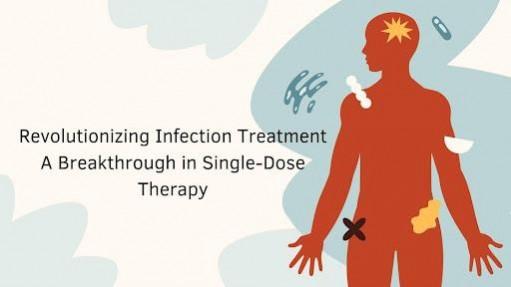
In this digital world, the healthcare industry has seen a groundbreaking innovation in treating acute bacterial skin and skin structure infections (ABSSSIs), especially among persons who inject drugs (PWID). Led by Karthik Akinapelli and co-authors Pedro Luis Gonzalez, Urania Rappo, Jennifer S. McGregor, Sailaja Puttagunta, and Michael W. Dunne, this novel approach offers an efficient, patient-friendly solution, revolutionizing infection management and improving outcomes for at-risk populations.
Addressing a Pressing Medical Challenge
ABSSSIs pose a major public health concern, particularly among the PWID population. Conventional treatments often require extended hospital stays, multiple antibiotic doses, and adherence challenges, leading to higher healthcare costs and poor patient outcomes. Innovative research has introduced a more efficient approach that addresses these issues, improving treatment effectiveness while reducing hospitalization and associated costs, ultimately enhancing patient care and outcomes.
The Power of Single-Dose Therapy
The core innovation lies in the use of dalbavancin, an antibiotic that has demonstrated effectiveness in treating ABSSSIs with a single-dose intravenous (IV) infusion. Unlike conventional antibiotic regimens requiring multiple administrations over several days, this treatment provides a powerful alternative that enhances patient compliance and reduces the burden on healthcare facilities.
Efficiency and Clinical Outcomes
A double-blind trial involving 698 patients evaluated the efficacy of a single-dose of dalbavancin against a two-dose regimen. The primary measure of success was a reduction in erythema (redness of the skin) by at least 20% within 48 to 72 hours. The findings revealed that the single-dose approach was just as effective as the two-dose regimen, marking a significant leap forward in infectious disease management.
Benefits Beyond Effectiveness
The advantages of this innovative treatment extend beyond clinical efficacy. A single-dose antibiotic offers a solution to several logistical and economic challenges in the healthcare system. By reducing the need for repeated hospital visits, this approach alleviates the financial strain on both medical institutions and patients. Additionally, it addresses adherence issues prevalent among PWID, ensuring better treatment outcomes.
Combating Antibiotic Resistance
Antibiotic resistance remains a growing concern worldwide, often exacerbated by incomplete treatment courses. The single-dose dalbavancin regimen minimizes this risk by ensuring full administration of the prescribed antibiotic in one sitting. This benefits individual patients and contributes to broader public health efforts to combat antimicrobial resistance.
Implications for Future Treatments
The success of this research opens new doors for groundbreaking advancements in the treatment of bacterial infections. By demonstrating the effectiveness of single-dose antibiotic therapy, it sets a strong precedent for similar innovations that could transform infectious disease management. This approach not only simplifies treatment but also enhances accessibility, particularly in underserved populations. As healthcare systems worldwide seek more efficient solutions, these findings highlight the potential for single-dose therapies to become a global standard, improving patient care and outcomes.
A Paradigm Shift in Patient Care
This groundbreaking advancement is transforming the treatment of ABSSSIs, particularly for high-risk populations such as PWID. Traditional therapies often require prolonged hospital stays and multiple antibiotic doses, leading to adherence challenges, increased healthcare costs, and higher risks of complications. The introduction of single-dose dalbavancin therapy offers a game-changing solution by simplifying treatment, improving patient compliance, and reducing hospital resource utilization. Moreover, by minimizing prolonged antibiotic exposure, this approach plays a crucial role in combating antibiotic resistance. As a result, it marks a significant milestone in modern medicine, enhancing both patient outcomes and the overall efficiency of infectious disease management.
In conclusion, Karthik Akinapelli and his co-authors have made a groundbreaking contribution to medical science through their pioneering research. Their work advances the fight against bacterial infections, offering new hope to millions. As healthcare evolves, such innovations redefine efficiency, accessibility, and patient care, setting a higher standard for the industry.










